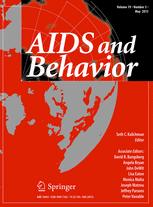Abstract:
Research on the relationship between adolescent health risk behaviors, sexual risk behaviors in particular, and perceived life satisfaction is emerging. Some researchers suggest that life satisfaction has been a neglected component of adolescent health research. African American adolescents aged 13-18 (n = 1,658) from four matched, mid-sized cities in the northeastern and southeastern USA, completed a self-report questionnaire via Audio Computer Assisted Self-Interview. Analyses were conducted to examine relationships between perceived difficulty in performing HIV/AIDS preventive behavior and perceived life satisfaction, while controlling for socioeconomic status. Results suggest that perceived life satisfaction is related to perceived difficulty in performing HIV/AIDS preventive behaviors, for both males and females, with variability in the magnitude of associations by gender. Further research is necessary to identify the particular characteristics of youth and specific aspects of adolescent life satisfaction associated with perceived difficulty in performing HIV/AIDS preventive behavior to develop gender-appropriate and culturally-sensitive quality of life/health promotion programs.
Authors
- Larry K. Brown
- Michael P. Carey
- Ralph J. DiClemente
- Naomi B. Farber
- Michael Hennessy
- Jelani C. Kerr
- Daniel Romer
- Laura F. Salzar
- Robert F. Valois
- Peter A. Vanable


